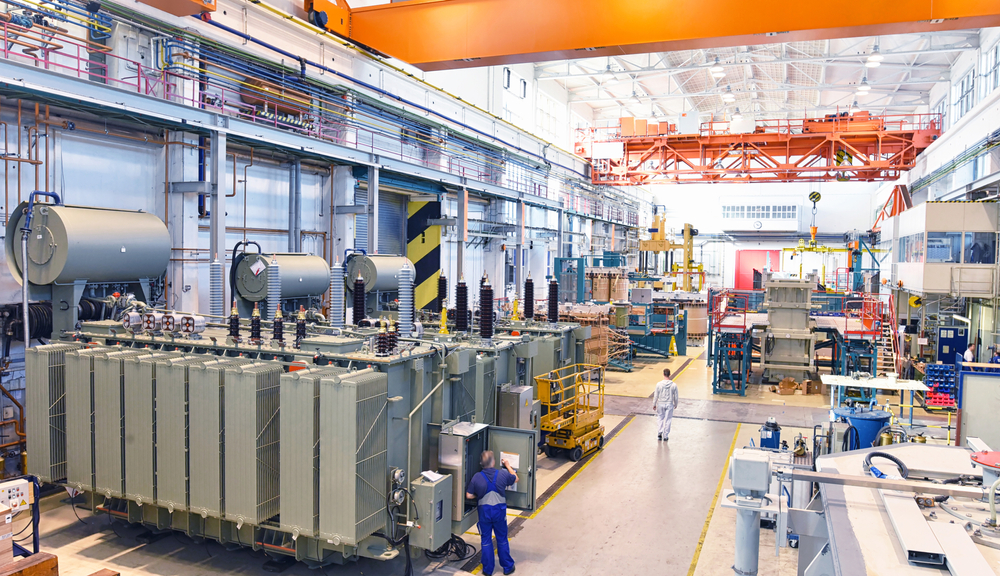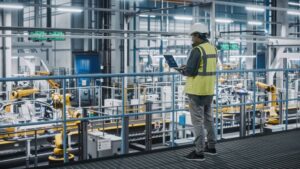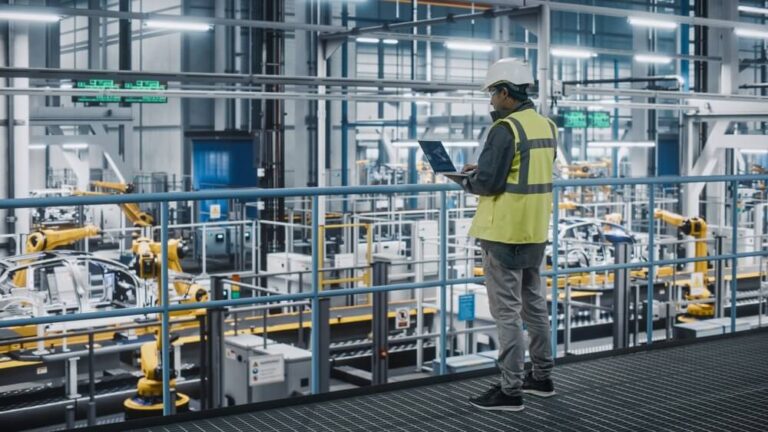The manufacturing industry is a vital part of the global economy, but it is not immune to challenges. In 2023, the industry will continue to face new and ongoing obstacles that will impact production, profitability, and growth. From changes in consumer demand to technological advancements, the manufacturing industry is part of a dynamic and ever-changing landscape.
Today, we will explore the most pressing manufacturing industry challenges of 2023 and how companies are responding to overcome them.
1. Recruitment and Retention of Employees
Recruiting challenges in 2023 are one of the greatest difficulties faced by the manufacturing industry. With a rapidly aging workforce and a growing demand for skilled workers, companies are struggling to find and keep the talent they need to stay competitive. The shortage of skilled workers in certain fields like manufacturing is leading to higher turnover rates and increased competition for top talent. This, in turn, is driving up costs for companies and hindering their ability to meet production demands.
To address this challenge, many companies are turning to innovative manufacturing recruitment strategies, such as offering competitive benefits packages, flexible work arrangements, and opportunities for professional development.
2. Inflation
Another significant challenge is the rising costs of raw materials. The prices of commodities such as steel, aluminum, and oil have been on the rise in recent years, and this trend is expected to continue. This is putting pressure on manufacturers, who are struggling to keep their costs low while still maintaining the quality of their products. The increase in raw material costs also leads to higher prices for consumers, making it more difficult for manufacturers to sell their goods.

3. Supply Chain Disruptions
Supply chain disruptions have affected almost every industry in the global economy since the start of the COVID-19 pandemic. The after-effects of the pandemic, as well as natural disasters and geopolitical tensions, have left many companies facing increased uncertainty in their supply chains.
As a result, companies are dealing with longer lead times, higher costs, and lower product quality, which can all negatively impact production schedules, customer satisfaction, and overall profitability.
4. High Customer Expectations
With the rise of e-commerce and the increasing availability of products and information online, customers are not only demanding a higher convenience of products, but also more personalized experiences. This puts additional pressure on manufacturers to deliver high-quality, customized products faster and at a lower cost.
Moreover, customers are becoming more environmentally and socially conscious, requiring manufacturers to adopt sustainable practices and prioritize social responsibility. Meeting these expectations requires significant investments in technology, and failure to do so could result in decreased market share, reputation damage, and lower profits for manufacturing companies.
5. Data Security
Data security remains a critical challenge for the manufacturing industry in 2023. With an increasing reliance on technology and digitalization, manufacturers are collecting and storing vast amounts of sensitive data. This includes everything from customer information to trade secrets, making the industry a prime target for cyber attacks.
Companies are also facing financial penalties for data breaches, as well as regulatory pressure to protect personal data. To address these risks, companies must invest in cybersecurity measures such as firewalls, encryption, and threat detection systems, as well as develop and enforce data security policies. Failure to secure data can result in financial losses, legal consequences, and damage to reputation.

6. Sustainability
Another issue impacting the manufacturing industry is the growing pressure to adopt sustainable practices. As we mentioned before, consumers are looking for ways to be more environmentally friendly, therefore demanding products that are produced in a more sustainable way.
Because of this, manufacturers must adopt more stringent regulations to reduce carbon emissions and the amount of waste they produce. This is leading to increased investment in renewable energy and more efficient production processes, which are procedures that only add to the cost of manufacturing.
7. Technology
The manufacturing industry also faces increased challenges and competition from automation and other advanced technology. Robotic technology continues to improve, allowing manufacturers to produce goods promptly and efficiently. While this is great news for consumers, it is also making it more difficult for manufacturers to compete in their industry if they aren’t able to keep up with the latest and greatest technologies but their competitors are.
As stated above, more advanced technology can also create other risks, such as data breaches and cyber attacks. Manufacturers will have to continue to find ways to protect data while still taking advantage of these new technologies.
8. Lack of Workforce Availability
Finally, with unemployment rates at historic lows, manufacturers are struggling to find the skilled workers they need to keep their operations running smoothly. Because there is a shortage of these skilled workers, the industry faces a lack of availability in its workforce. This has led to increased competition in finding talent, ultimately driving up wage costs for many companies.
To address this challenge, manufacturers are turning to alternative workforce solutions such as outsourcing, automation, and providing additional training to existing employees. However, these solutions require significant investments and may not provide a long-term solution to the workforce availability challenge.
Despite these challenges, the manufacturing industry continues to be an essential part of the global economy. Manufacturers are finding new ways to innovate and adapt to these challenges, and there are many opportunities for growth and success in the years to come. With the right strategy, investment, and approach, manufacturers can continue to drive economic growth and create new opportunities for everyone.
Are you looking for your next manufacturing position? At Austin Nichols, we specialize in placing candidates in the manufacturing, engineering, and construction industries. To learn more, contact us today!










